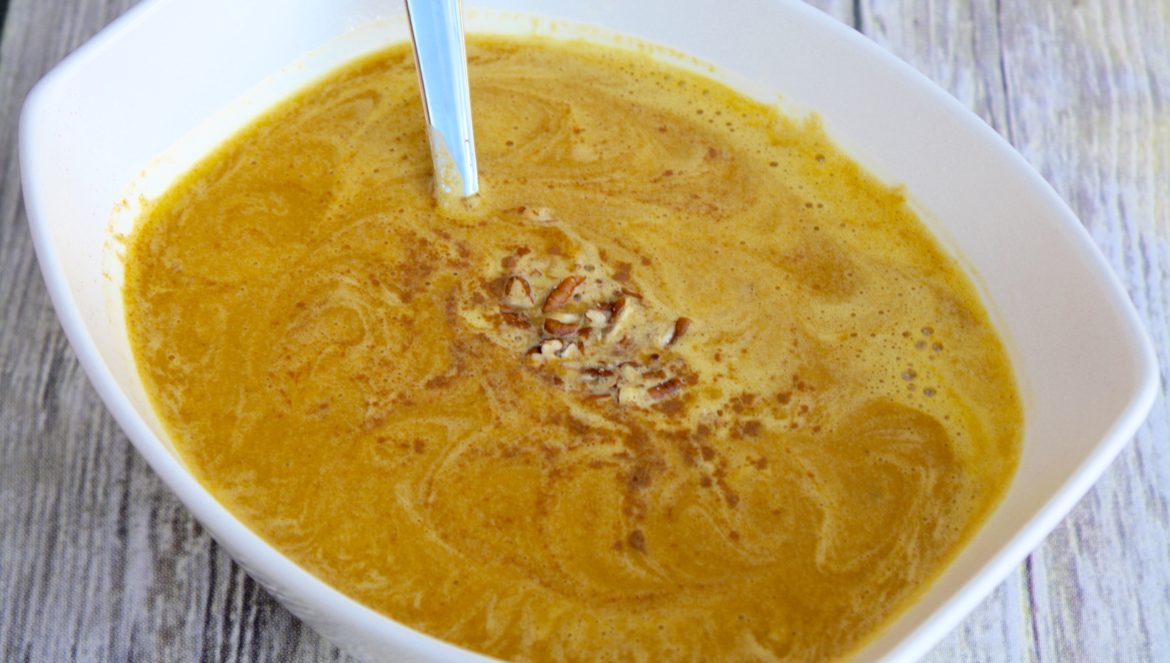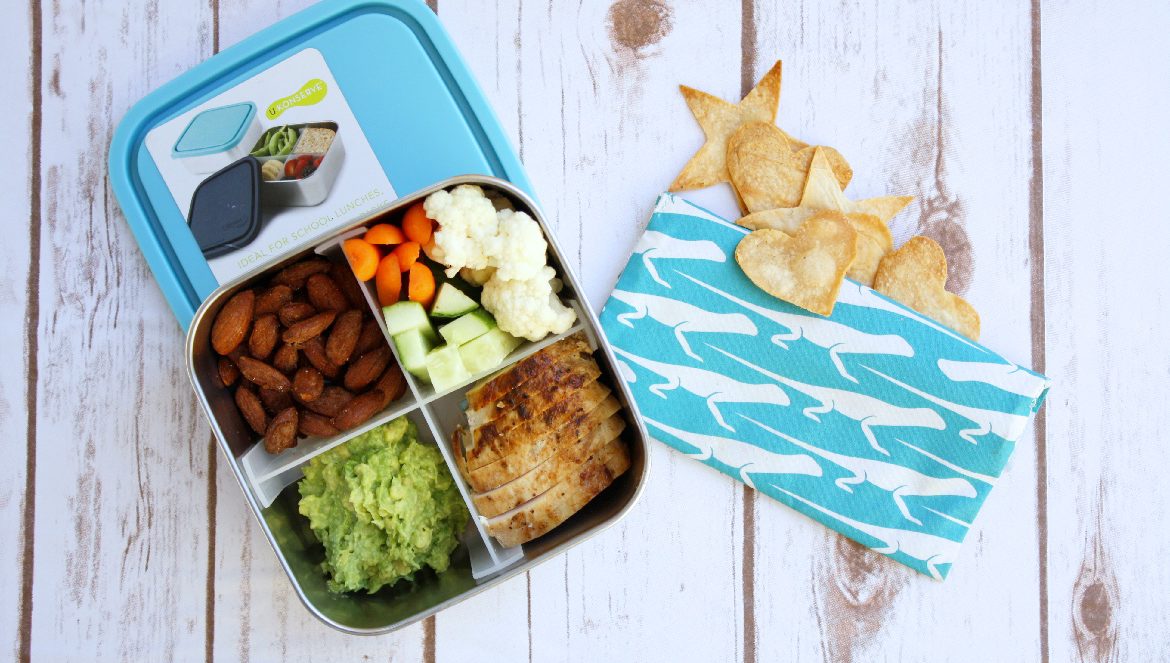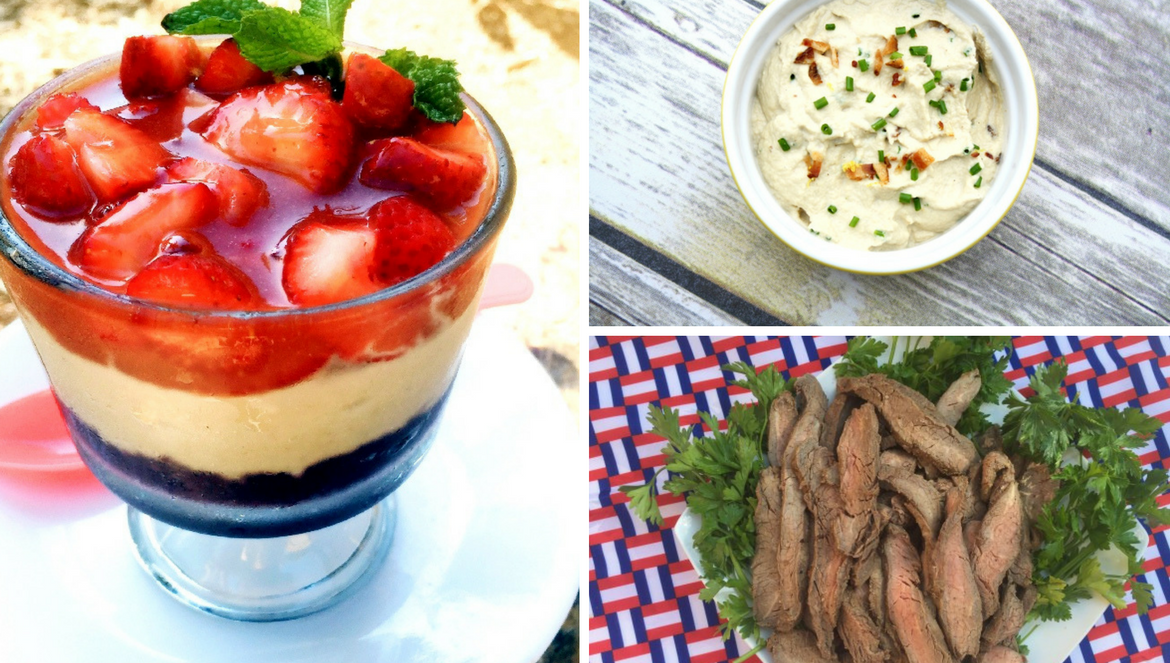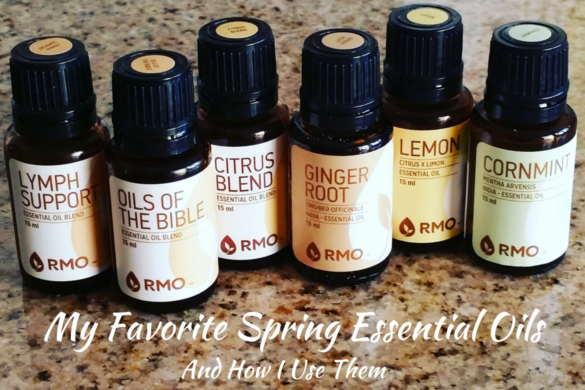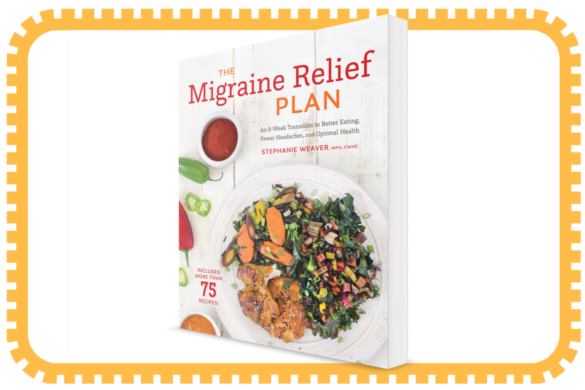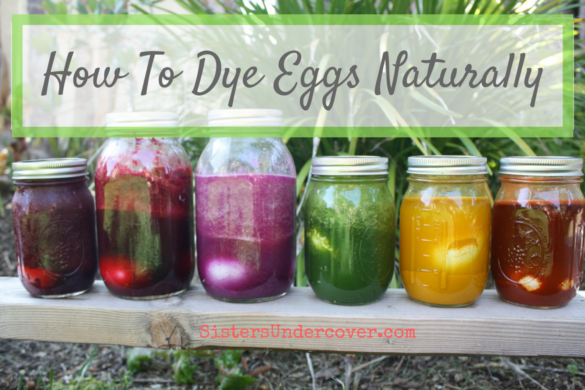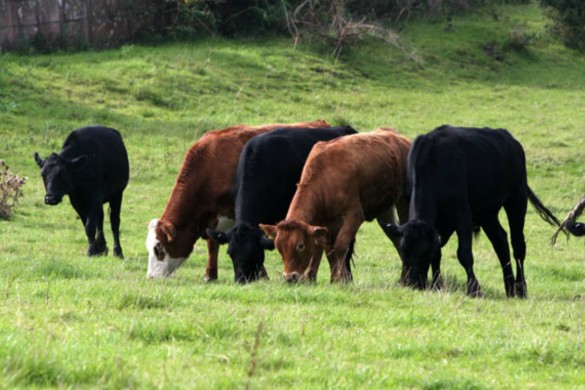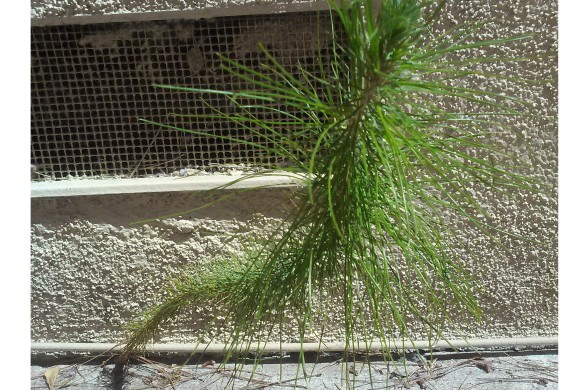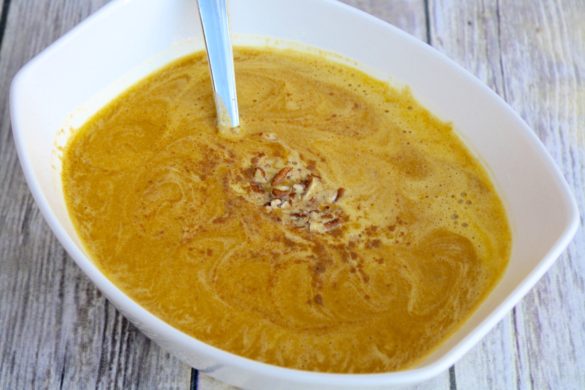What foods can you eat?
What DO you eat? I think that is one of the most asked questions I get when people find out I am cleaning up my diet. The quick answer I usually give is, I’m on a paleo diet, but more restrictive. The next question is usually, “Isn’t it unhealthy to eat all that meat?”. Possibly, but I eat loads of vegetables with lean protein, not huge amounts of fatty protein with a side of veggies. I try to eat leafy greens at EVERY meal, including breakfast! I really look at my diet as an anti-inflammatory diet. I want to make sure I’m not eating things that are causing inflammation in my gut because that triggers autoimmune responses.
I started off eliminating gluten and dairy from my diet and slowly eliminated other foods. I am in the process of adding foods back in, but it’s a slow process and frustrating at times. Take your time, it can be overwhelming. Sometimes when you take a food out you feel no difference, but when you add it back in you feel bloated or gassy or even have brain fog return. Keep a food journal to help you keep track. I often want to speed up adding foods back in, but I feel so good that sometimes I don’t even want to try and add foods back in!
Go for it!
Here is a list of foods I encourage you to eat and even amp up in your diet. I will also let you know what makes some of these foods so great for you to eat.
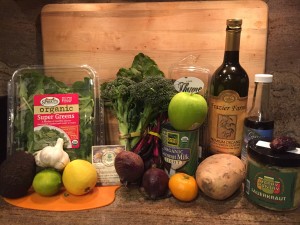
- Berries, especially blueberries & tart cherries– flavonoids (Quercetin) and healthy polyphenols (anti-inflammatory properties.
- Beets– has betaine (helps protect cells and fight inflammation) helps nitrates turn into nitric oxide, has fiber, vit C, phytonutrients, potassium, magnesium, folate, manganese.
- Leafy greens– you cannot eat too many leafy greens. Kale is a super green, but this includes collard greens, spinach, romaine lettuce, arugula, chards, watercress to name a few of the biggies.
- Curciferous Vegetables- includes broccoli, cauliflower, cabbage, brussels sprouts, bok choy (kale and other leafy greens too), kohlrabi. There is some evidence of curciferous vegetables interfering with the thyroid hormone, but cooking the veggies helps to reduce that risk. A cool bok choy fact, recent studies show bok choy has over 70 antioxidant phenolic substances which help scavenge free radicals (free radicals cause oxidative stress which can alter lipids and DNA and trigger disease) and bok choy, along with many greens are a good source of Vit K, Vit A& Vit C.
- many herbs are anti-inflammatory as well- parsley, cilantro, rosemary, basil and thyme are great. Don’t forget to include peppermint, sage,mint, bay leaves, chamomile, chives, cilantro, dill, lavender, lemongrass,tarragon, sage.
- Here are a couple great anti-inflammatory spices- turmeric or curcumin– potent antioxidant as well as anti-inflammatory, Turmeric has many benefits, add it to your diet, but you may need to take it as a supplement as well because the levels are pretty low in the actual root. Ginger, cinnamon, Garlic, shallots, cloves, saffron.
- try out some fermented veggies, sauerkraut, kombucha (try to get vegetable kombucha, the fruit ones are sometimes super high in natural sugars), water kefir.
- Apple Cider vinegar, coconut amino’s, coconut flour are always pantry staples.
- Avocado oil, Olive oil, coconut oil, tallow, lard. I like using Olive Oil as more of a finishing oil (I try not to cook with it) I usually cook with lard, coconut oil or avocado oil.
- onion, sweet potato, parsnip, turnip, jicama, celeriac, rutabaga are some great root veggies
- meats- lean beef, bison, lamb, chicken, turkey, duck, pork, venison
- seafoods- salmon (try to have once a week), shellfish, sardines, anchovies, tuna any other fish.
- bone broth
- offal- I’m still working on incorporating this. gizzard, heart, kidney, liver, tongue. The easiest way to incorporate offal is with ground beef. A mixture of ground beef and beef heart or liver and most people won’t notice it.
- fruits- here are some good ones- I already covered berries, avocado, all melons (cantaloupe has the best anti inflammatory properties) honey dew, watermelon, stone fruit (apricot packs a punch for such a little guy!) peaches, plums, nectarines, citrus fruits (lemon, lime, grapefruit etc), pineapple (although it has a high sugar content it contains many vitamins), pomegranate, fig, dates, apple, banana, kiwi, mango, papaya, pear, plantains.
Put on the brakes!
Here are triggers for inflammation and foods to weed out of your diet. On a positive note, you can systematically add things back into your diet after some time. Three months is the minimum amount of time to be off of a food. I started this about 2 years ago and have added in many things, but also taken other things out!
Removing the foods below can be a challenge. I did this gradually. I removed gluten and dairy at the same time and after about three months of that (and feeling so much better), I eliminated refined sugar ( I only consume raw honey and coconut nectar), then I removed soy after a few more months. Next to go was grains, corn in particular was a hard one for me. A year in, I eliminated beans, legumes and nightshades. Although I love many of the foods that I have eliminated I do have to admit after the initial detox from removing the food, I felt better. Different aspects of my life unrelated to food improved as well, brain fog was reduced and at times completely gone, allergy symptoms are rare for me now, joint pain has been greatly reduced. The things that improved that I expected were, energy level went way up, I stopped feeling bloated and gassy and I lost a bunch of weight. During the time that I was eliminating certain foods from my diet I also started meditating, making an effort to sleep between 10 p.m-6 a.m. and started gentle yoga.
Here are some foods to avoid.
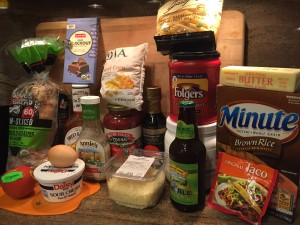
- Dairy– this includes ghee, yogurts, milks (cows, goats, sheep etc.), cheeses (cream, soft, hard, all cheeses), kefir, creams, whey, whey protein. What’s the problem with dairy? Casein, whey, lactose. These are the three things in dairy that are usually causing peoples inflammation.
- All grains– wheat, corn, rice, barley, buckwheat, quinoa, oats, rye, spelt, millet, sorghum etc. Although controversial as to why, this is the group of foods that helped me feel the best after eliminating. Well, grains and dairy. Many theories are out there for why this may be a trigger for inflammation. Possibly from how the grains are processed or what is sprayed on them while they’re in the fields. The length of time the grains are in the field ready waiting to be harvested. There is also the fact that in the 1960’s a sort of dwarf wheat was made which has less nutrients, but can yield more wheat, quicker. This is the wheat that we consume today and another possibility why there is a rise in allergies and sensitivities to wheat. This wheat has lower levels of nutrients, same levels of phytic acid. Phytic acid impairs the absorption of minerals like calcium, iron, zinc. It is sometimes called an anti nutrient! Check out this article and more from Dr. Sarah Ballantyne PhD the Paleo mom.
- nuts-almonds, coffee, cocoa, pecan, walnut, pistachio, cashews etc. Phytic acid strikes again here with nuts, but there are also different theories out there about nuts. One being, people that have a leaky gut can develop food allergies and sensitivities easier and nuts are a common allergenic food. After three months you should be able to introduce many nuts at least in small amounts.
- seeds- chia, cumin, pumpkin, sunflower, sesame, coriander, canola, anise, poppy, mustard etc.
- eggs (all kinds)- egg yolks seem to be easier on your digestive system than egg whites, but cut them out for at least three months. Add in the yolks first for a month or more, then try egg whites.
- alcohol– drinking alcohol makes it easier for bacteria to travel through the intestinal lining.
- sweeteners- sugar (raw or refined),high fructose corn syrup, corn syrup, stevia, agave, any artificial sweetener, splenda etc.
- NSAIDs- aspirin, ibuprofen, naproxen
- food additive and chemicals, thickeners, emulsifiers
- legumes and beans– black beans, soybeans, kidney beans, lentils, navy beans, peanuts, garbanzo beans (chickpeas) lima beans, pinto beans, white beans. Legumes cannot be fully digested which means they can pass through the intestines intact which causes an inflammatory response.
- Nightshades– strangely, this has been the category that was the hardest to eliminate, it took me a year to finally get rid of nightshades and I have tried to add a few back in unsuccessfully darn it! Tomatoes, peppers (chili, cayenne,sweet peppers, jalepeno, poblano, habanero etc), eggplant, potatoes, paprika, goji berry, tomatillo etc. Nightshades contain alkaloids which can cause inflammation. There are many studies going on right now in this area. Remove all nightshades for three months and then add in tomatoes, if you feel gassy or you have intestinal cramping wait a couple weeks and try them again. After three tries I would go off them for another three months before trying again.
What does a meal actually look like?
When you change to a more anti inflammatory diet the goal is to feel better. You are looking for nutrient dense food. Food that is easy on your digestive system and full of glorious vitamins and minerals to help heal your gut. Make sure to check labels for hidden gluten and dairy, you’ll be surprised with how many products have those ingredients hidden in them!
I can’t stress enough that you want to have a heavy emphasis on vegetables, you want a colorful plate. Half or more of your plate is mostly leafy greens with some cruciferous vegetables. Protein will take up about a fourth of the plate and a starchy vegetable like sweet potato and fruits together comprise the other fourth.
Be kind to yourself. This is not about depriving yourself of foods. It’s about feeding your body nutrient dense foods to hopefully improve your quality of life.
Are you ready to start an elimination diet? Are you ready to cut out foods that could be causing inflammation inside your body? Let us know! We want to hear about your journey, your hard days when your body is detoxing and those great days when you have more energy than you have had in months or even years! If you have any questions please leave them in the comments below. Have fun investigating YOUR own body and health!
To stay up-to-date on our investigations and more, join our sleuthy community!
(Note: Some links in this post are affiliate links, this means we get a small commission if you click and then purchase an item. This is one way we are able to keep the website up and running. Read our disclosure policy here.)



